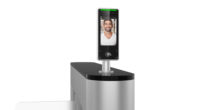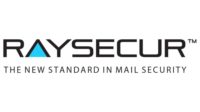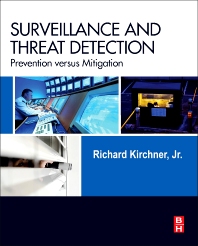Oosto announced the latest release of its Vision AI software platform, which is said to include significant video analytics enhancements for video surveillance hardware and access control systems.
The version release is accompanied by the introduction of Oosto’s proprietary edge device, the new OnPoint touchless reader tablet. This output allows security teams to further reduce organizational risks associated with outdated physical security systems, better manage controlled access, as well as identify safety threats, according to the announcement.
Oosto said it is harnessing the power of edge computing, facial recognition and Vision AI to bring physical security into the modern age. Edge computing in smart video surveillance offers many advantages including improved response times, a smaller physical footprint (because fewer servers are required for video processing), improved scalability, and even built-in failover so that if a network failure occurs, edge devices continue operating without pause.
With Oosto’s latest edge enhancement, the Vision AI platform offers a “no-compromise” solution that de-risks video analytics at the edge while maintaining high performance and accuracy. Oosto leverages state-of-the-art Kubernetes technologies to protect its algorithms by containerizing the application (vs. running the neural networks directly on edge devices).
Performance-wise, Oosto’s neural networks have been optimized to support low-power edge devices while still offering superior performance and recognition accuracy. Based on internal benchmarks, Oosto’s algorithms are now seven times more efficient in terms of watts-per-video stream than the company’s next nearest rival.
“It was only a matter of time before real-time video surveillance and access control systems would harness the power of the edge,” said Dieter Joecker, CTO, Oosto. “With our recent enhancements to our Vision AI platform, Oosto is transferring compute workloads from expensive on-premise servers to the edge but, perhaps more significantly, we’re doing this without sacrificing recognition accuracy, security and performance in real-world scenarios or expanding the physical footprint of the system.”
Many organizations are increasingly moving critical processes from central servers to a variety of edge devices and its adoption is growing across industries, use cases and geographies. In fact, the global edge computing market is expected to grow to $155.9 billion by 2030, a compound annual growth rate of 38.9% (source: Research and Markets, September 2022). This shift enables edge devices such as smart cameras, gates and access control systems with local decision-making to open gates for authorized employees or send real-time alerts to security teams when a person-of-interest enters a commercial space.
In the announcement, Oosto listed the following key enhancements to its version 2.6 release:
Optimized Neural Networks: Oosto’s neural networks have been optimized to operate on a wide variety of edge and near-edge devices. Historically, video images required compute-intensive GPU servers. Today, Oosto’s neural networks for watchlist alerting can support very large datasets (which are often required for smart cities and other related use cases) and enable image-rich watchlists to be automatically pushed to mobile personnel in the field.
OnPoint Reader: The new Oosto OnPoint reader is an edge device that can function autonomously and can grant/deny access to employees and visitors even during a network failure. OnPoint readers leverage facial biometrics and edge computing to quickly and accurately recognize authorized personnel, even with obscured faces. The OnPoint touchless reader eliminates surface contact and incorporates 3D liveness detection to prevent spoofing (where a visitor uses a picture or video of an authorized employee to circumvent security).
Near-Edge Processing: Oosto is launching an updated near-edge device (e.g., NVIDIA Jetson) that operates on a much smaller physical footprint and is equipped with Oosto’s state-of-the-art neural network models for video analytics. While the latest version of the Vision AI platform still requires a central server, it can now interoperate with a number of leading GPU-less mini-servers.
Smart Camera Integration: Oosto is pioneering the concept of “camera as a sensor” by embedding our state-of-the-art neural networks (SDK) into the latest AI-enabled CCTV cameras. Because the image processing and face vectoring happens on the camera, these smart cameras reduce the need for computing requirements on the server side and enable powerful capabilities such as watchlist alerting, frictionless access control, tailgating detection/prevention, and other video analytics capabilities.
Genetec VMS Integration: Oosto’s latest release also provides Genetec VMS customers with a single pane of glass to view real-time alerts of security threats (i.e., individuals spotted on a company’s watchlist) by accurately identifying persons of interest in real-time, even under adverse conditions (e.g., acute camera angles, people in crowds, less-than-optimal lighting conditions). Oosto’s integration enables surveillance operators with a complete history of all POI detections (video playbacks) within Genetec Omnicast™ VMS to facilitate and expedite investigations.
By leveraging edge and near-edge technologies, Oosto is helping to revolutionize, modernize and de-risk physical security while dramatically lowering the total cost of ownership for video surveillance and access control systems.








